South Korea’s AI-Powered LNG Capesize Bulk Carrier, A New Era of Sustainable Maritime Innovation
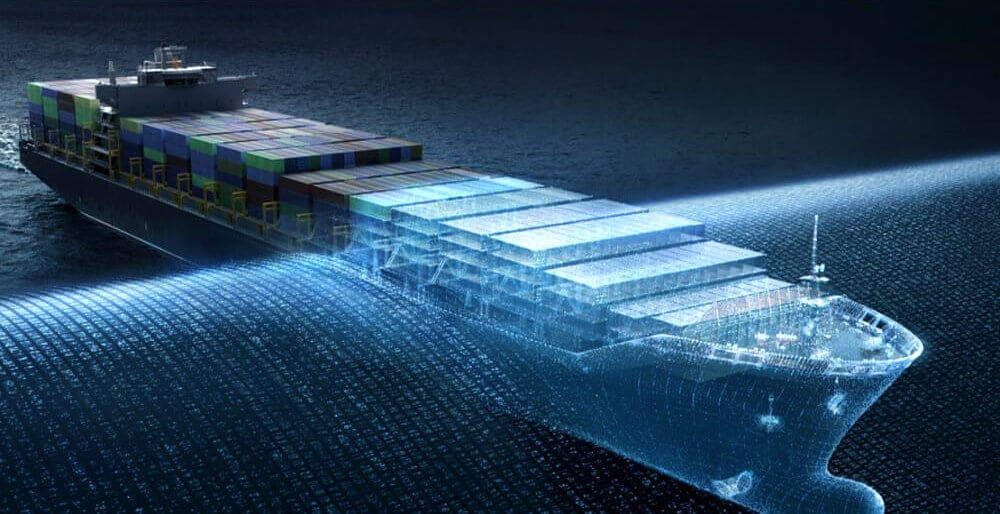
28th August 2023
In a significant leap towards revolutionizing the maritime industry, South Korea has unveiled its latest breakthroughs in autonomous shipping technology. With a rich history of maritime trade and innovation, the country is now poised to lead the charge in the development and implementation of autonomous vessels, promising safer, more efficient, and environmentally friendly maritime transportation. LNG powered LNG Capesize bulk carrier integrated with cutting-edge artificial intelligence (AI)-based machinery monitoring and safety systems. This groundbreaking development represents a significant step forward in the nation’s commitment to sustainable shipping and technological innovation.
Autonomous Ships A New Horizon LNG Capesize
South Korea’s commitment to technological advancement is no secret, and its maritime sector is no exception. The nation’s latest endeavors focus on bringing autonomous ships to the forefront of the shipping industry, with the goal of reducing human error, improving navigational efficiency, and ultimately transforming the way goods are transported across the world’s oceans.
The Korea Maritime and Ocean University (KMOU), renowned for its maritime research, has been at the forefront of this endeavor. The university’s researchers have developed cutting-edge AI algorithms that allow ships to autonomously navigate complex routes, respond to changing weather conditions, and avoid collisions – all while optimizing fuel consumption. This breakthrough holds the potential to greatly reduce the environmental impact of maritime transportation, a critical concern as the world grapples with climate change. The new LNG-powered Capesize bulk carrier, named the “Green Voyager,” is a testament to South Korea’s dedication to environmentally friendly shipping solutions. Utilizing liquefied natural gas (LNG) as its primary fuel source, the vessel significantly reduces greenhouse gas emissions and air pollutants compared to traditional fossil fuels. This aligns perfectly with international efforts to combat climate change and promote sustainable shipping practices.
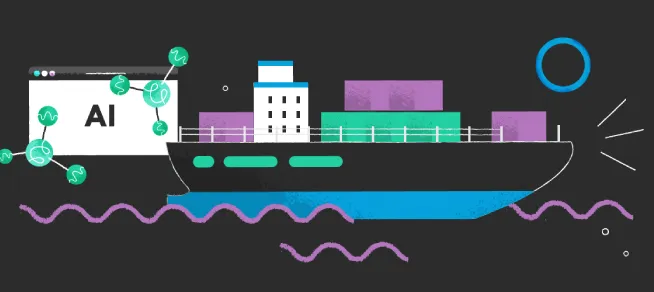
Challenges and Opportunities
While the prospects of autonomous shipping are promising, challenges remain. Ensuring the cybersecurity of autonomous vessels is a paramount concern, as any compromise in the ship’s systems could have far-reaching consequences. South Korea has responded by establishing a cybersecurity task force dedicated to addressing these vulnerabilities and developing robust protective measures.
The advancement of autonomous shipping also raises questions about the future of maritime jobs. As traditional crew roles evolve, there is a need for reskilling and upskilling the workforce to operate and maintain the sophisticated technologies that power these vessels. South Korea has taken a proactive approach by investing in training programs and education initiatives that equip maritime professionals with the skills needed for the digital age.
Collaboration and Regulation
South Korea recognizes that the transition to autonomous shipping collaboration with Samsung Heavy Industries to develop LNG bunkering ship equipped with the Samsung Autonomous Ship (SAS) system. Government agencies, academic institutions, maritime companies, and technology firms are all working together to create a comprehensive framework that supports the safe and efficient deployment of autonomous vessels.
The Korean Register of Shipping (KR), a leading classification society, has been actively involved in developing guidelines for autonomous ships. These guidelines encompass the design, construction, and operation of autonomous vessels, addressing concerns related to cybersecurity, emergency response, and liability. By setting standards and ensuring compliance, KR is instrumental in instilling confidence in this groundbreaking technology.
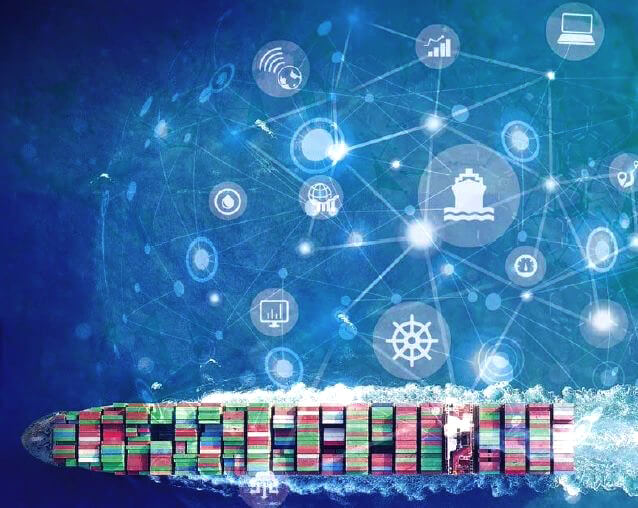
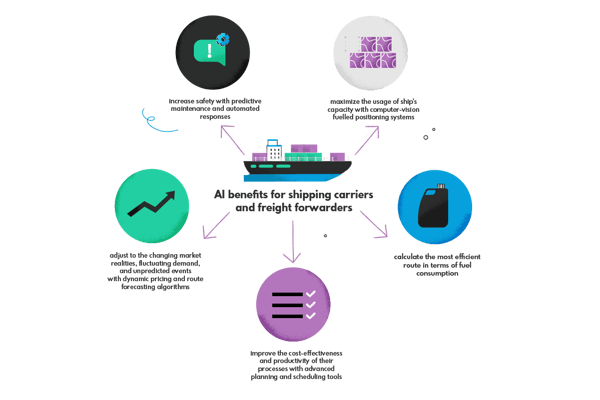
A Blueprint for the Future
The unveiling of the Green Voyager marks a significant achievement not only for South Korea but for the global shipping industry as a whole. This successful integration of LNG propulsion and AI-based safety systems serves as a blueprint for future vessels seeking to combine sustainable operations with cutting-edge technology.
As maritime regulations continue to evolve to address environmental concerns and safety standards, the Green Voyager demonstrates that it is possible to achieve both ecological responsibility and operational efficiency. It sets a precedent for the integration of AI and advanced monitoring systems in maritime operations, underscoring South Korea’s leadership in shaping the future of shipping.
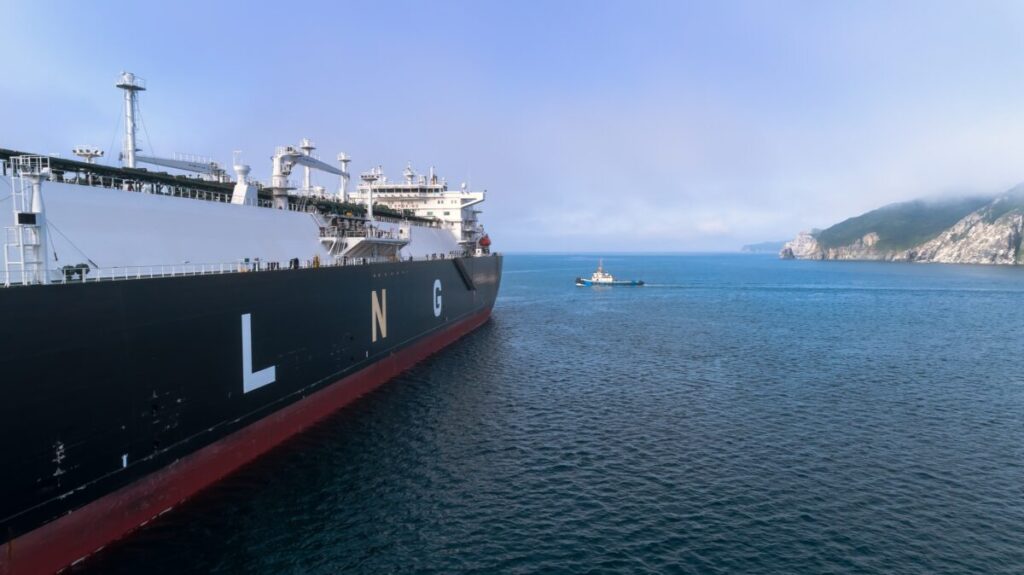
Conclusion
South Korea’s journey into the realm of autonomous shipping marks a significant milestone in the evolution of maritime transportation. The LNG-powered Capesize bulk carrier equipped with AI-based machinery monitoring and safety systems represents a turning point in maritime innovation. With its commitment to environmentally friendly practices and technological excellence, South Korea’s maritime industry is charting a sustainable course towards a cleaner, safer, and more efficient shipping landscape. As the world watches these developments unfold, the promise of autonomous ships navigating the high seas is no longer a distant dream but a tangible reality on the horizon.
Click here to join our Telegram chanel
You will get information, news, and support related to Merchant Navy.
